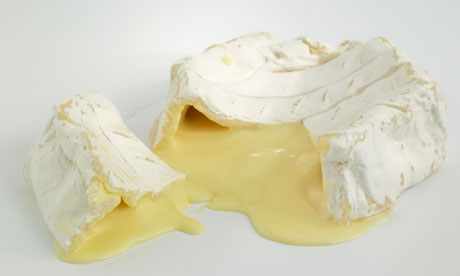
It was only when my six-year-old began complaining about my dinner that I realised I might not be as other diners. He said he could smell something. He said he could smell something bad. Everybody around the table in this restaurant on the Normandy coast agreed. Oh dear. And I only thought it was my dinner.
What they could smell was a length of crisp-skinned, charred, dense, pink, meaty andouillette, made from folds of pig gut rolled in on itself. Except that description doesn't really do it, for the andouillette is a culinary object in a very select category, the one marked "really bloody stinky". And I say this as a man who loves them. Put bluntly, andouillette smells like a farmyard. Before anybody has bothered to come along and clean it.
It is a smell so strong, so intense, so utterly boisterous that you can almost taste it (even though the flavour on the tongue is merely of a ripe porkiness). Even I accept it has revolting qualities, a hit that speaks of decay. My wife calls it poo sausage; I don't argue. But that's what I and people like me – and there are a few – love about it. Eating an andouillette is an experience that pounds the senses. Indeed to me there is a clear divide in the world, between those who embrace the thrilling culinary extreme and those who run away from it screaming for mummy.
I love salted fish that can be smelled three streets away, or cheeses so runny and high they seem to be making a bid for freedom. I adore Korean pickled vegetables that have been incarcerated for so long they are beginning to fizz, game birds hung until their butts are blue, and of course offals many and various. To my mind these are some of the very best food experiences precisely because (not in spite of the fact that) they hover on that very fine line between safe for human consumption and not. As far as I'm concerned, a really good dinner is one that carries with it the faint whiff of death.
I can see how some would see this as merely a kind of gastronomic adventurism. Or, as your parents might describe it, shameless showing off. It's not. It's simply a product of extended development. As kids we have tender, fearful palettes. We disdain certain foods – salty olives or blue cheeses fractured with mould. But as we grow up our tastes widen. We meet strange new foods, try them and like them. It was olives that fell first with me, just before my 10th birthday, followed by a slippery Brie de Meaux, running away across a shiny walnut board. It took me another decade before I realised salted anchovies would be a friend for ever.
The difference between me and others is that my tastes continued to widen. There were peppery tripe stews with the whiff of gut, kidneys with the slight aroma of the substances they filter, heady cheeses with a stench which would probably cause them to be banned from public transport in Singapore. And of course the noble, reeking andouillette. The important thing is that I shouldn't be dissuaded by the squeamishness of others, that I should carry on eating this stuff, even as people turn from me – and hope that one day my son will stop being one of them; that I will finally get him to try one. Some people might call that cruel and unusual punishment. Some might call it gratuitous. I call it good parenting.
jay.rayner@observer.co.uk

